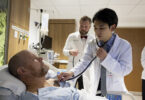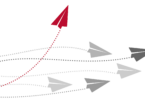So, how do we do even better as we move into the future? What will be our joint foci as we move through the next 351 days of this year? There are five goals which I hope to accomplish in 2004.
First, we must reverse the trend on faculty vacancies. You all know the numbers: Over the past two fiscal years, direct funding to the University of Georgia from the state has decreased some $50 million while enrollment has increased by some 1,400 students. Demand for enrollment at UGA continues to grow; we have hundreds of vacant faculty positions and more and more students to teach. This is a trend that simply cannot continue, and I pledge today that the first priority for any additional tuition revenue will be the hiring of faculty.
In particular, we must hire faculty in those areas that bear the greatest responsibility for undergraduate teaching. We will focus faculty hiring on instructional faculty to teach core courses to freshmen and sophomores.
While these core courses are taught across the campus, the bulk of them are taught in the Franklin College of Arts and Sciences. It is hard to imagine that at this time next year, Wyatt Anderson will no longer be the dean of the Franklin College. Wyatt is the quintessential university dean? respected scholar in his own right and member of the National Academy of Sciences who is also a voracious reader, music lover and theater patron. I will miss his counsel and measured approach to issues. The strength of any great institution is in the collective talents of the individuals who comprise it, but some individuals deserve particular recognition. Wyatt Anderson is one of those individuals; please join me in recognizing him and his wife Margaret for their service to this university.
There are two other former deans who are now serving this university in different capacities. David Shipley has returned to the classroom after leading the School of Law since 1998, and Bonnie Yegidis, after serving as dean of the School of Social Work since 1995, is now associate provost for academic affairs. Please join me in thanking both of them for what they have done and will do for UGA.
Second, we will move into the East Campus Village, a residential and dining complex near the Ramsey Student Center, a facility which will have the same transforming impact on the residential life of this campus that the Student Learning Center has had on its academic life, and which will for many years serve as a symbol of the commitment of this university to the residential experience of our students. The benefits of having more students living on campus extend far beyond those students and permeate the community, increasing the academic vigor of the institution.
As in any example of progress, there are many people who deserve the credit. Let me mention just a few of them who deserve credit for the East Campus Village: Senior Vice President for Finance and Administration Hank Huckaby; Jo Ann Chitty, president of the Real Estate Foundation, and the members of that organization? board; Danny Sniff, associate vice president for facilities planning; Jim Day, director of University Housing; Joyce Hardman Sniff, director of parking and transportation; and Mike Floyd, director of food services. Please join me in recognizing them.
Third, we will see construction on the Coverdell Center begin in earnest. This facility, financed through a combination of federal, state and internal funds in honor of the late Senator Paul Coverdell, will bring together the breadth and depth of UGA? research in the biomedical and health sciences. This university is involved in a wide range of research in this area, in the life sciences, the colleges of Pharmacy and Veterinary Medicine, in communications and many others. We are doing far more in this area than most people know, and that is a story that I hope to tell in the coming year.
I must note that again we stand on the achievements of those who went before us, particularly former President Fred Davison, whose vision for UGA? role as a leader in the life sciences is now fully realized. Harry Dailey, director of the Biomedical and Health Sciences Institute, which will be housed in the Coverdell building, has demonstrated great leadership in bringing together the many faculty from multiple programs as we start this endeavor. Please join me in recognizing Dr. Dailey.
Fourth, we will complete the plans and accelerate the fund raising for an alumni and development center. Such a center will bring an elevated level of activity to the central campus area and become a home for UGA? increasingly numerous alumni and a locus for our development efforts, which generate critical financial support for the range of activities this institution undertakes on a daily basis. There are two people I want to recognize among the many who have played and will continue to play important roles in the progress of the center. First is Dave Muia, executive director of the UGA Alumni Association, who is retiring this month after serving this university in a variety of external affairs positions since 1975. Dave, I have enjoyed working with you and appreciate your lifelong commitment to the University of Georgia. Second is Dink NeSmith, president of the Alumni Association, who has also served UGA through the Fanning Institute, Leadership Georgia, the UGA Foundation Board of Trustees and the Athletic Association. Please join me in thanking them.
And fifth, departments, schools and colleges must work to increase the number of graduate students and graduate assistants in targeted academic areas, in keeping with one of the goals of our strategic plan. Great universities have strong graduate programs, and strong graduate programs benefit the state intellectually and economically. Graduate students are also the foundation of communities of learning both here and across the nation.
When completed, these five goals will continue this institution along the path of progress that it has followed for the past several years. And, just as the progress we have made is the result of collective efforts, any progress in the future will require the collective efforts of all of us. We are far, far greater than the sum of our parts.
And finally, a few personal words. Despite the successes at the University of Georgia in 2003, the past six months have been the most difficult of my professional life. The stress of numerous events on my family has been greater than I would ever have hoped. I have spent too much time too far removed from what drew me to higher education. It is particularly troubling that the attention paid to a personnel decision has shifted the focus from where it should be, on the students and faculty, the instruction and research and service, the internationalization and facilities and the impact that UGA has within and beyond the borders of this state. All that the institution and we personally have gone through has led me to think about what is most important and where we are going and how we should all spend our time.
I believe we are all still young enough to learn, and I believe I have learned from the challenges of 2003 in ways that will make me a better leader of this community of learners in 2004.
But it is now time to put 2003 behind us and focus on a future in which I truly believe the University of Georgia best serves the state of Georgia by becoming a better community of learners. I still know in my gut that what is most important for the future of Georgia is even better students, even better faculty, even better staff all working together in a better learning environment which promotes teaching, research and service.
When I walk this campus, I have the same feelings I did when I first walked on a campus more than 30 years ago. There is something truly special about a place built for the single purpose of learning. It is in those moments when I walk the campus that I most deeply feel that purpose—not in cabinet meetings or University Council or admissions meetings or research or foundation board meetings or any of the other appointments and necessities which take up my days. Walking the campus, stopping on the sidewalk to chat with a member of the faculty or a student, seeing young people reading on the North Campus lawn or Brooks Mall, enjoying a choral performance on the Chapel steps, overhearing a botany professor take a class on a tour of the campus arboretum, dodging through the midday class change on Baldwin—these are the things that bring me back to our purpose. These are the times when I am most in concert with the community of learning. These are the times when I am glad that I chose this as my life’s work.
For more than three decades I have loved the feel of a campus, and for 22 consecutive years now I have been privileged to work on three of America’s great campuses. My singular goal for this year and for years to come is that the University of Georgia become a better community of learners. I ask that you join me in a renewed commitment to this place and its mission. The people of Georgia and the students at UGA deserve nothing less.
Thank you.







